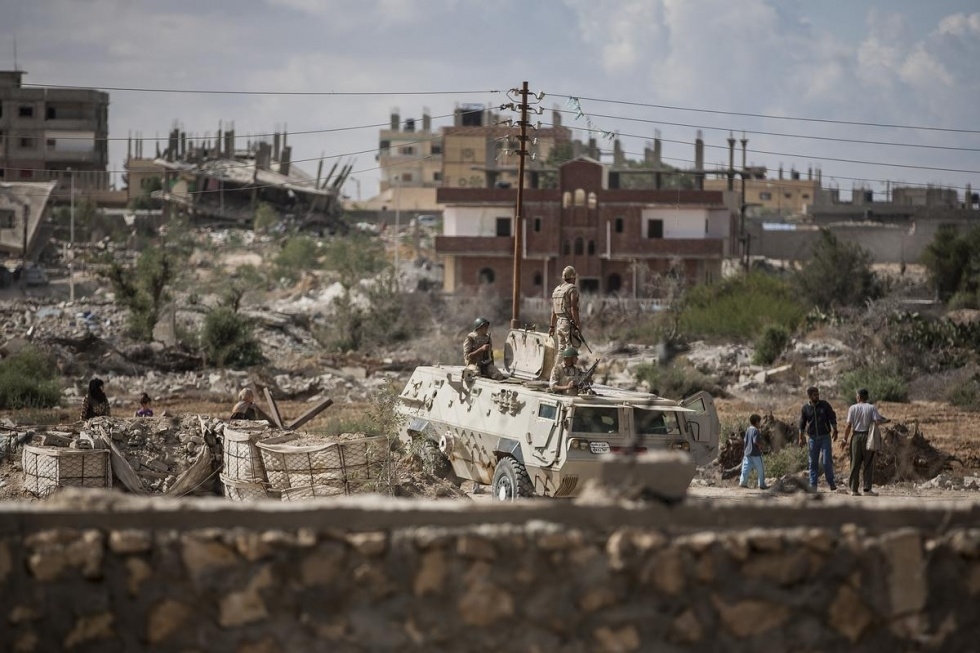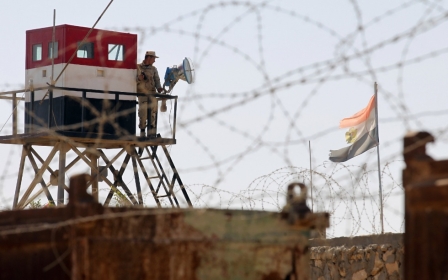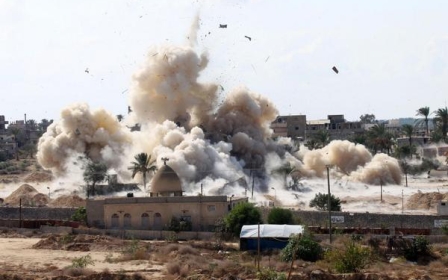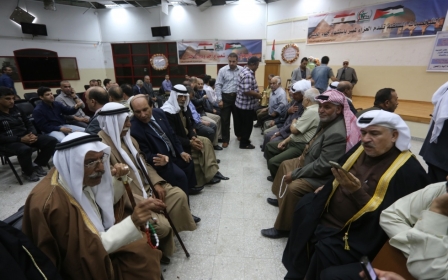Hamas: list of alleged Sinai militants includes children and dead Gazans

Hamas has categorically denied reports circulating in the Egyptian media alleging that Hamas operatives were involved in the deadly attack on Egyptian forces that killed at least 30 soldiers on 21 October.
Egyptian daily el-Watan last week published a list, apparently taken from a source within Egypt’s Interior Ministry, of people thought to have links to the attack, which happened in the Sinai Peninsula town of Sheikh Zuweid, close to the border with the Gaza Strip.
Gaza’s Interior Ministry on Thursday held a press conference to refute the names.
A ministry spokesperson, Ayad al-Buzum, later published a statement, saying that six of the names were not even found on the Palestinian civil register.
Two of the others, Buzum said, died over two months ago during the latest war in Gaza.
Five others were Palestinians from the West Bank who, Buzum said, had never been to the Gaza Strip – among these was a 15-year old child.
Hamas leader Musa Abu Marzuq called the list of names of Palestinians thought to be involved in the attack a “campaign of hatred” on Thursday.
Tunnels destroyed
In the aftermath of the bombing, which saw a car packed with explosives ram into an army checkpoint, Egyptian authorities quickly took security measures, announcing a state of emergency in large parts of the Sinai Peninsula.
President Abdel Fattah al-Sisi also said in a speech that “the problems…of the Rafah border line and all the problems in the area should be approached.”
Egypt then closed the Rafah border crossing, the only route into the Gaza Strip not directly controlled by Israeli authorities.
On Thursday, the Egyptian army announced that it had destroyed six underground tunnels between the Sinai Peninsula and the Gaza Strip.
The entrances to the tunnels were discovered in civilian houses in the Egyptian town of Rafah, which lies on the border with the Gaza Strip.
The houses were destroyed after their occupants were evacuated, reported pan-Arab daily al-Hayat.
An unverified video circulated by Egyptian news site Rassd purports to show the destruction in Rafah.
US support for Sinai security measures
Several of Egypt’s cities saw marches on Friday against the enhanced security measures in the Sinai, which include the displacement of the mainly Bedouin population living along the border with the Gaza Strip.
It is estimated that around 800 homes will be razed according to the plan, in an effort to expand a “buffer zone” between the countries.
The marches came after the US on Thursday announced its support for Egypt’s right to “maintain [its] own security.”
“Certainly we believe that Egypt has the right to take steps to maintain their own security,” State Department spokesperson Jen Psaki told a press conference on Thursday.
“We understand the threat that they are facing from the Sinai.”
However, Psaki also stressed the need to consider the impact the measures will likely have on local communities.
“We…continue to encourage them to take into account those that would be internally displaced by this.”
Some 110 homes had been evacuated by Friday – it is not clear whether the houses were demolished immediately.
New MEE newsletter: Jerusalem Dispatch
Sign up to get the latest insights and analysis on Israel-Palestine, alongside Turkey Unpacked and other MEE newsletters
Middle East Eye delivers independent and unrivalled coverage and analysis of the Middle East, North Africa and beyond. To learn more about republishing this content and the associated fees, please fill out this form. More about MEE can be found here.




